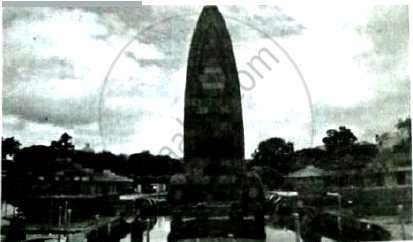Advertisements
Advertisements
Question
Mahatma Gandhi’s decision to withdraw Non-Cooperation Movement was criticized from all quarters. In this context, briefly explain the formation and achievement of the Swaraj Party.
Solution
After the withdrawal of the Non-Cooperation Movement by Gandhiji, there prevailed calmness in the All India National Congress. Most of the leaders were in jail, and those who were not jailed showed not much of a zeal in pushing Gandhiji’s scheme. They were disappointed. At the same time, leaders like C.R. Das and Motilal Nehru advocated a new line of political activity. They were of the opinion that the congressmen should stand for election to the Legislative Councils. Sardar Vallabhbhai Patel opposed this suggestion. He was of the opinion that it would weaken the national zeal. At this stage Motilal Nehru and C.R. Das formed a new group within the Congress and called it the ‘Swaraj Party’. Many other leaders also joined the ‘ Swaraj Party.’
The Swarajist’s Party went ahead with its programme. They took part in the elections held in 1923 and won 43 seats in the Central Legislative Assembly. Their great achievement was that they boldly and fearlessly criticized the wrong policies of the British Government from within. Another great achievement of the Swarajists was that they re-awakened the political consciousness which had been lowered due to the withdrawal of the Non-Cooperation Movement. These elected members exerted considerable influences on the Government machinery which became more actively fruitful in some way. Their party also succeeded in getting Vithalbhai Patel elected as President (Speaker) of the Central Legislative Assembly. C. R. Das was elected as Mayor of Calcutta. They continued struggling for self-government from within.
APPEARS IN
RELATED QUESTIONS
With reference to the picture given below, answer the following questions :

Explain briefly the reason for the suspension of this particular movement Gandhi in 1922.
Give two offshoots of the political excitement created by protests against the Simon Commission.
Why is the Congress session, held at Lahore in 1929, significant in the history of India’s Freedom Movement?
When and where was resolution of complete independence (Poorna Swaraj) passed?
Why did Gandhiji suspended the Non-Cooperation Movement?
How did the Non-Cooperation Movement instil confidence among the Indians?
In what way did the Non-Cooperation Movement provide a national base to the Congress?
Mention any two achievements of the Swaraj Party.
What did the Swaraj Party advocate?
Explain the new method of Non-Cooperation advocated by the party member after the suspension of the Non-Cooperation movement by Gandhiji.
